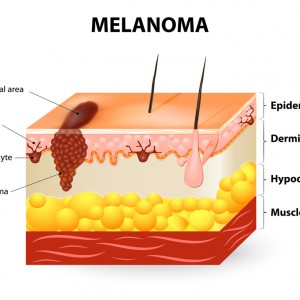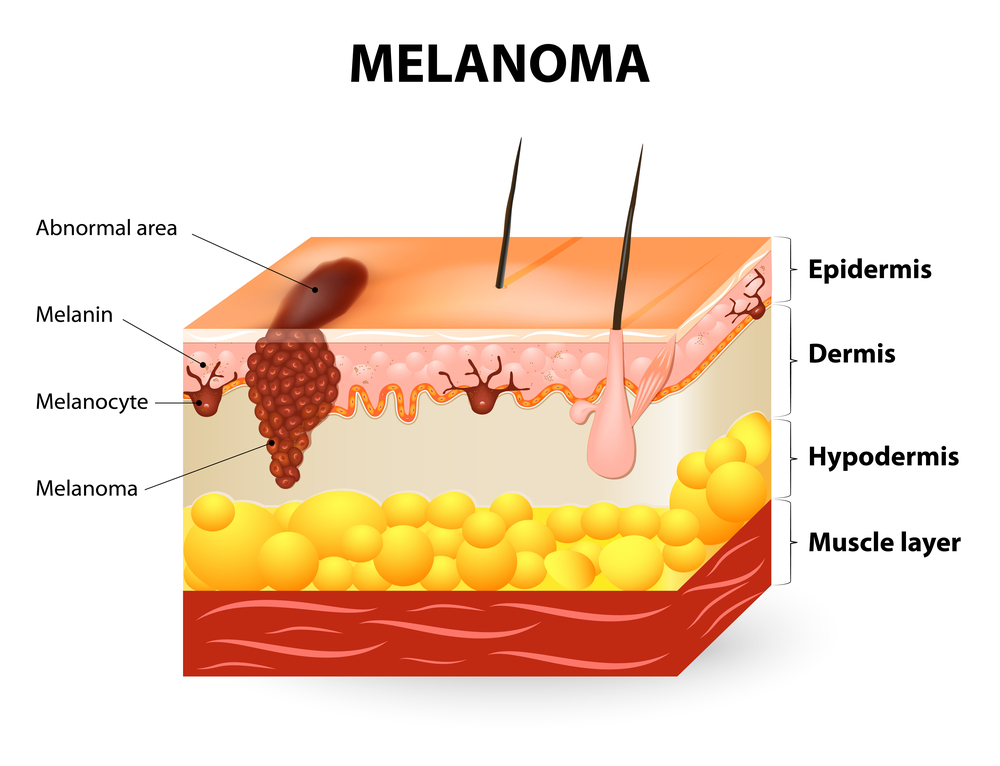 In a new study entitled “Atg7 Overcomes Senescence and Promotes Growth of BrafV600E-Driven Melanoma” researchers at the Rutgers Cancer Institute, New Jersey show the potential added benefit of combining anti-autophagy drugs with BRAF inhibitors to treat melanoma. The study was published in the current online edition of Cancer Discovery.
In a new study entitled “Atg7 Overcomes Senescence and Promotes Growth of BrafV600E-Driven Melanoma” researchers at the Rutgers Cancer Institute, New Jersey show the potential added benefit of combining anti-autophagy drugs with BRAF inhibitors to treat melanoma. The study was published in the current online edition of Cancer Discovery.
Half of melanoma patients, the second deadliest type of skin cancer, harbor genetic mutations in the BRAF gene, leading to sustained activation of a signaling pathway, the MAP kinase pathway. This results in an advantage for cancer cells as it promotes their unrestrained growth and survival. BRAF inhibitors have been successfully used in the treatment of advanced melanoma, however, melanoma patients often develop resistance to these drugs, resulting in melanoma relapse.
In this study, a team of researchers led by Janice M. Mehnert, MD, medical oncologist at the Melanoma and Soft Tissue Oncology Program, the Cancer Institute of New Jersey in collaboration with Eileen White, PhD, associate director for basic science at the Cancer Institute and professor at the Rutgers School of Arts and Sciences, tackled the mechanisms that allow melanoma cells to thrive, focusing on the role of macroauthophagy (a process used by cells to promote the degradation of damaged proteins and organelles). The authors experimented with combining an autophagy targeted therapeutic with BRAF inhibitors would decrease melanoma burden, as autophagy is known to play a role in tumor survival and proliferation.
The authors used a genetically engineered mouse model of melanoma (harboring the oncogenic BrafV600E mutation and without a tumor suppressor gene, Pten in melanocytes) and deleted an essential autophagy gene, the Atg7 gene. The team found that by deleting Atg7, tumors decreased and became senescent, preventing tumor development. Furthermore, Atg7 not only allowed melanoma to overcome senescence but it also limited the oxidative stress in tumors. Notably, dabrafenib’s (BRAF inhibitor) anti-tumor activity was more pronounced upon Atg7 loss.
These results suggest that combining an anti-autophagy therapeutic with BRAF inhibitors could increase their overall anti-tumor activity and become beneficial for melanoma patients. “This discovery that ATG7 promotes the growth of melanoma tumors underscores that the development of agents targeting autophagy may effectively inhibit melanoma growth,” study author Janice M. Mehnert, MD commented in a press release.


